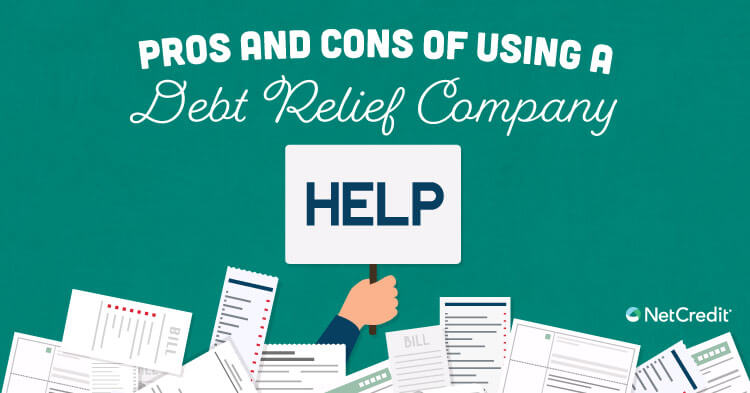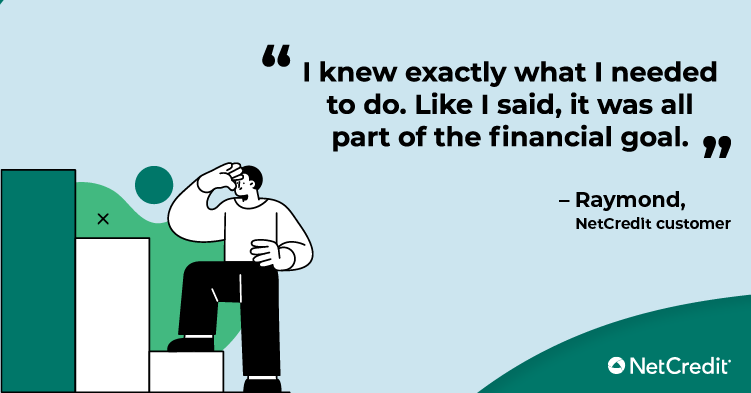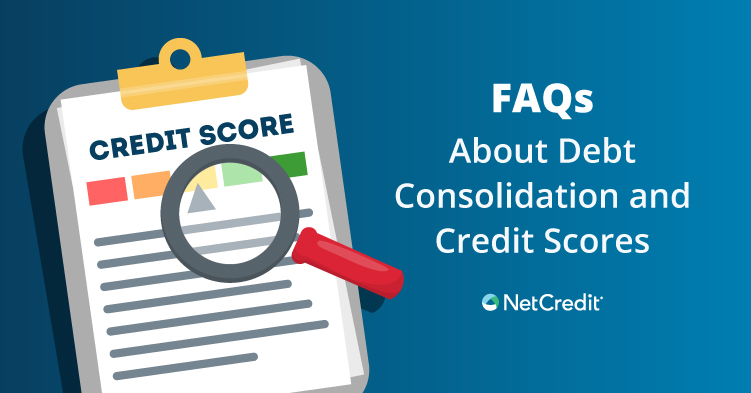It’s never good to fall behind on credit payments, but in reality, most of us don’t have a perfect credit score. According to recent data, the average score in America falls somewhere between the fair to good rating, or roughly 680 to 703 points (depending on the scoring model).1
However, uncontrolled and overwhelming debt is another story. If your balance is very high, monthly payments may barely cover account fees and interest. Crippling debt can take a serious toll on your mental health and delay long-term financial plans, like buying a home or saving for retirement.
Debt relief companies might seem like a good option if you’re struggling to keep up with payments, but you don’t need to spend a dime to manage your own debt. Read on to learn about the pros, cons and alternatives to using debt relief companies.
What Does a Debt Relief Company Offer?
Debt relief companies are third-party businesses that negotiate on your behalf in hopes of reducing, canceling, settling or changing outstanding credit debts. While that sounds great, debt relief services have plenty of disadvantages. In fact, they can be incredibly expensive and even damage your credit score. On top of that, debt relief companies can’t ultimately guarantee that your creditors will agree to reduce your balance.
Debt relief agencies can’t collect fees from their customers up-front. Instead, customers usually open a special savings account and make deposits towards the lump-sum, which is then used as collateral to negotiate with lenders in hopes of settling the debt.
It’s important to note that not all lenders may agree to a reduced settlement, so you might not be able to reduce your balance with this option. Additionally, debt relief services may only work with certain types of debt, like a credit card or personal loan.
What are the Benefits of Using a Debt Relief Company?
The biggest benefit of using a debt relief or debt settlement agency is the convenience of letting someone else handle your debt negotiations and/or repayment plan. These companies may also be able to help you save money by lowering your balance, but it’s not guaranteed.
What are the Drawbacks of Using a Debt Relief Company?
Debt relief companies work for a fee, and anything you pay for the service won’t apply towards your balance. In other words, debt relief companies can significantly increase the total cost it would take to eliminate the debt on your own.
In addition to the cost, debt relief services can seriously damage your credit in more than one way. Closing or settling an account can lower your score since you’re reducing your total credit limit across all accounts. Additionally, credit relief agencies may ask you not to pay your bills in order to have more leverage during debt negotiations. Whenever you don’t make monthly payments, your credit score takes a hit.
Should I Use a Debt Relief Company?
If your debt is causing you a great deal of stress or you want to eliminate it as soon as possible, debt relief companies may work for your situation. On the other hand, if you want to keep your expenses down as much as possible and feel like you can handle your own budgeting, consider some alternatives to debt relief companies.
Alternatives to Debt Relief Companies
A debt relief agency won’t be able to do much, if anything, that you can’t do yourself for free. While it may be easier to have a debt relief company negotiate on your behalf, you’ll pay pretty a penny for a service that may not save you money in the long run. If you’re already in over your head with debt, expensive credit services may not be the best fit for your budget. Here are some ways you can reduce the impact of debt on your own.
- Try to negotiate your own debts: While it’s not guaranteed, you might be able to negotiate more favorable payment terms on your own. Some lenders may be willing to adjust your payment terms if you’re falling behind on monthly bills. Contact your lender for more information.
- Use a trustworthy credit counseling service: Credit counseling organizations vary, but many offer one-on-one services and advice to help you repay debt. While they generally won’t negotiate with creditors for a reduction in debt, credit counselors may be able to help you manage the terms of your debt. If you want to develop a plan with a financial coach, look for reputable agencies and non-profit organizations in your area.
- Consider a debt consolidation loan: Debt consolidation can give you more room in your budget and even save you money compared to debt relief programs.
Whatever route you choose, make sure that you carefully weigh the risks and benefits before you make a commitment.
References
1Peter, B. (2020). What Is the Average Credit Score in America?
The information in this article is provided for educational and informational purposes only, without any express or implied warranty of any kind, including warranties of accuracy, completeness or fitness for any particular purpose. The information in this article is not intended to be and does not constitute financial, legal or any other advice. The information in this article is general in nature and is not specific to you the user or anyone else.






